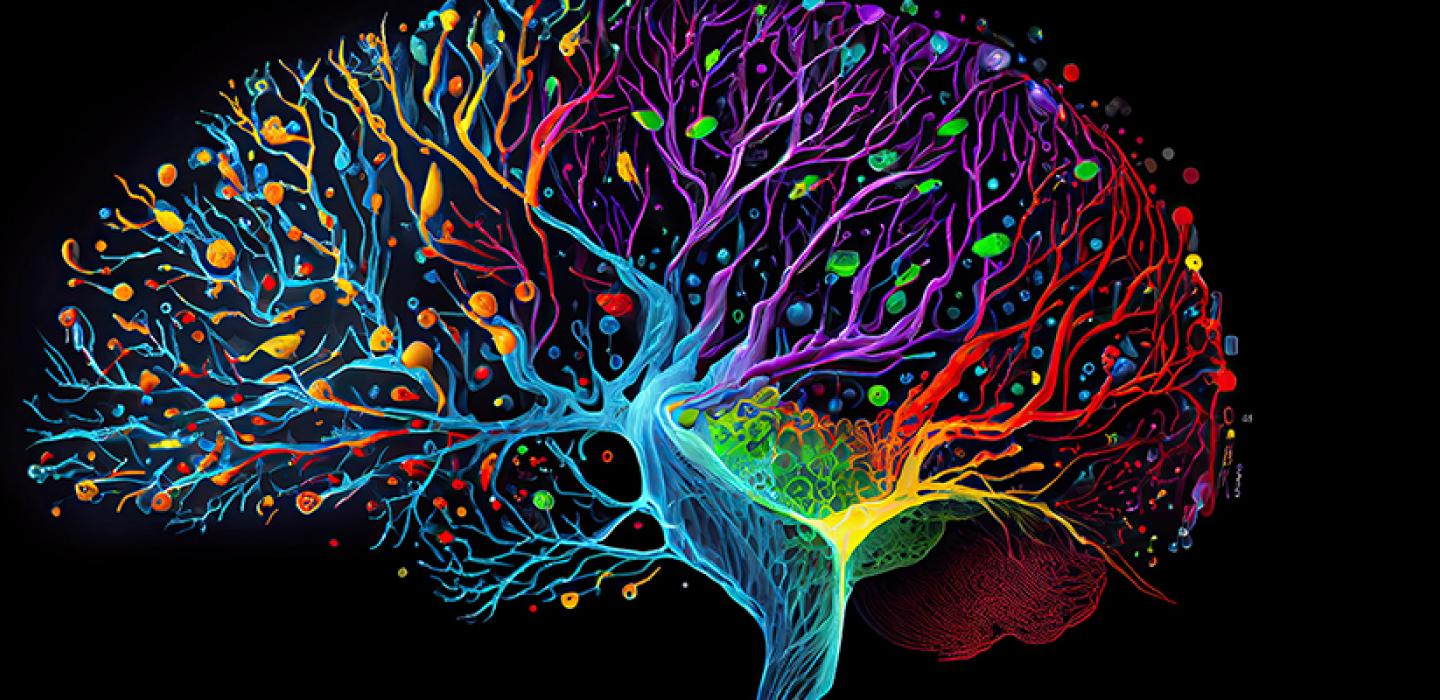PSY M01 Introduction to Psychology
Explores the scientific study of behavior and mental processes, focusing on a broad range of psychological theories and concepts, methods, and research findings. Covers topics such as the biological bases of behavior and mental processes, perception, cognition and consciousness, learning, memory, emotion, motivation, development, personality, social psychology, psychological disorders and therapeutic approaches, and applied psychology. (3 units)
PSY M01H Honors: Introduction to Psychology
Explores the scientific study of behavior and mental processes, focusing on a broad range of psychological theories and concepts, methods, and research findings. Covers topics such as the biological bases of behavior and mental processes, perception, cognition and consciousness, learning, memory, emotion, motivation, development, personality, social psychology, psychological disorders and therapeutic approaches, and applied psychology. Challenges honors students to be more analytical and creative through rigorous assignments, real-world applications, and enriched opportunities. (3 units)
PSY M02 Introduction to Behavioral Neuroscience
Introduces the scientific study of the biological bases of behavior and its fundamental role in the neurosciences. Addresses physiological, hormonal, and neurochemical mechanisms, and brain-behavior relationships underlying the psychological phenomena of sensation, perception, regulatory processes, emotion, learning, memory, and psychological disorders. Notes historical scientific contributions and current research principles for studying brain-behavior relationships and mental processes. Discusses ethical standards for human and animal research in the context of both invasive and non-invasive experimental research. (3 units)
PSY M02H Honors: Introduction to Behavioral Neuroscience
Introduces the scientific study of the biological bases of behavior and its fundamental role in the neurosciences. Addresses physiological, hormonal, and neurochemical mechanisms, and brain-behavior relationships underlying the psychological phenomena of sensation, perception, regulatory processes, emotion, learning, memory, and psychological disorders. Notes historical scientific contributions and current research principles for studying brain-behavior relationships and mental processes. Discusses ethical standards for human and animal research in the context of both invasive and non-invasive experimental research. (3 units)
PSY M03 Personal Growth and Social Awareness
Focuses on how psychology is used in everyday life and is related to other social sciences. Surveys different psychological perspectives and theoretical foundations and how these are applied across a person’s life taking into account the influence of factors such as culture, gender, ethnicity, historical cohort, and socio-economic status. Provides a broad understanding of how scientists, clinicians, and practitioners study and apply psychology. (3 units)
PSY M04 Child Psychology
Examines the stages of development: Prenatal and pregnancy, first 2 years, early childhood, middle childhood, adolescence and emerging adulthood. Addresses biological, physical, cognitive, emotional, and social development. Examines the influences of culture, family, society, and the environment on psychological development. (3 units)
PSY M05 Social Psychology
Considers individual human behavior in relation to the social environment. Examines the power of the situation, other individuals, and the social group. Emphasized topics include aggression, prejudice and stereotypes, interpersonal attraction, attitudes and attitude change, conformity, group phenomena, gender roles, cultural norms, person perception, and social cognition. (3 Units)
PSY M06 Introduction to Behavioral Research Methods
Introduces basic research concepts and principles of behavioral science; descriptive and experimental research approaches; hypothesis formation and testing; experimental variables and controls; validity and reliability; experimental and quasi-experimental research designs; and research ethics. Examines research design and methodology through a review of research in a variety of the subdivisions of Psychology. (3 units)
PSY M07 Developmental Psychology (Lifespan)
Provides an overview, from a psychological perspective, of human development from conception through death, including biological and environmental influences. Examines theories and research of physical, cognitive, personality, social, and cultural aspects of development, as well as attention to developmental problems. (3 units)
PSY M08 Abnormal Psychology
Introduces the scientific study of psychopathology and atypical behaviors, broadly defined. Investigates abnormal behavior from a variety of perspectives including biological, psychological, and sociocultural approaches. Surveys theory and research in abnormal behavior and introduces intervention and prevention strategies for psychological disorders. (3 units)
PSY M10 Dying and Death
Explores issues and decisions concerned with dying and death over the life span. Covers topics such as historical and cross-cultural perspectives, death socialization, medical ethics, the health-care system, legal issues, and after-life concerns. (3 units)
PSY M13 Human Sexuality
Explores psychological, biological, sociological, cultural and historical perspectives of human sexual behavior. Emphasizes the diversity of human sexual development and current research. Covers topics such as theoretical approaches to sexuality, sex research, sexual anatomy, physiology, sexual arousal and response, gender identity, sexual orientation, contraception, pregnancy, attraction, love & communication, sexually transmitted infections, HIV & AIDS, variations in sexual behavior, sexual challenges and therapies, sexual coercion and harassment, and sex work. (3 units)
PSY M14 Cross-Cultural Psychology
Focuses on the impact of cultural and societal influences on the psychological development of ethnic groups. Integrates traditional theoretical approaches in psychology to current cross-cultural research and theory in the study of African Americans, American Indians, Asian Americans, and Latinos. Covers research methodology; identity formation and ethnicity; cognition and intelligence; language development; family and gender roles; psychological stressors; behavioral disorders and clinical assessment; cross-cultural counseling techniques; prejudice, discrimination and stereotypes. (3 units)
PSY M16 Personality Theories
Examines major topics in the field of personality psychology including theoretical approaches, assessment measures, and the philosophies and historical contributions of key figures to the study of personality. Includes topics such as psychoanalytic, neo-analytic, biological, behavioral, humanistic and existentialist, trait, interpersonal, cognitive, and interactionist theories and individual differences in personality. (3 units)
PSY M80 Internship in Psychology
Provides on-the-job learning to develop effective work habits, attitudes, and career awareness in paid or unpaid internships that are related to Psychology. Involves the development and documentation of learning objectives and the completion of an internship paper, presentation, or project. Includes both workplace supervisor and faculty adviser feedback and/or written evaluations. (1-4 units)
PSY M122 Independent Study – Psychology 0.5-3 Units
Allows independent study for students who wish to extend their knowledge of a particular area of Psychology through research and study. Utilizes an approved independent project. Includes one-on-one work with instructor. Interested students should contact a Psychology instructor for assistance in developing a contract for learning about a specific topic. (0.5-3 units)
PSY M125 Statistics for the Behavioral and Social Sciences
Applies statistical methods to behavioral and social science data. Includes descriptive and inferential statistics, levels and types of measurement, measures of central tendency and dispersion, normal t and chi-square distributions, probability and hypothesis testing, and correlation and regression. Applies statistical software to behavioral and social science data. (3 units)




